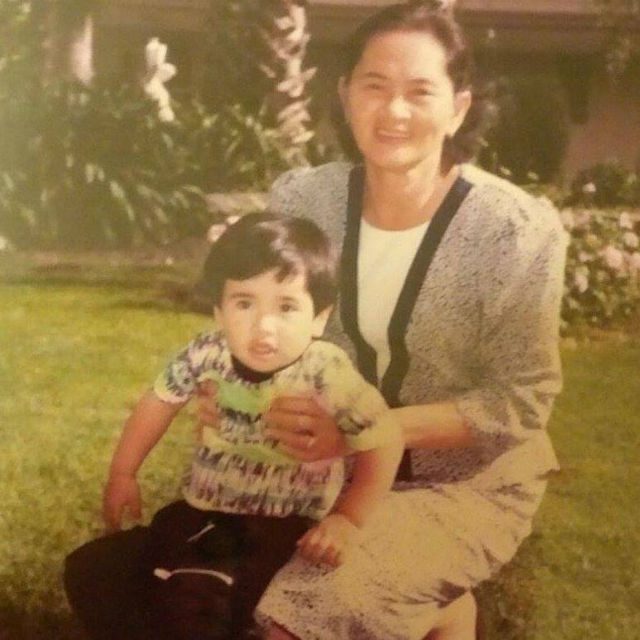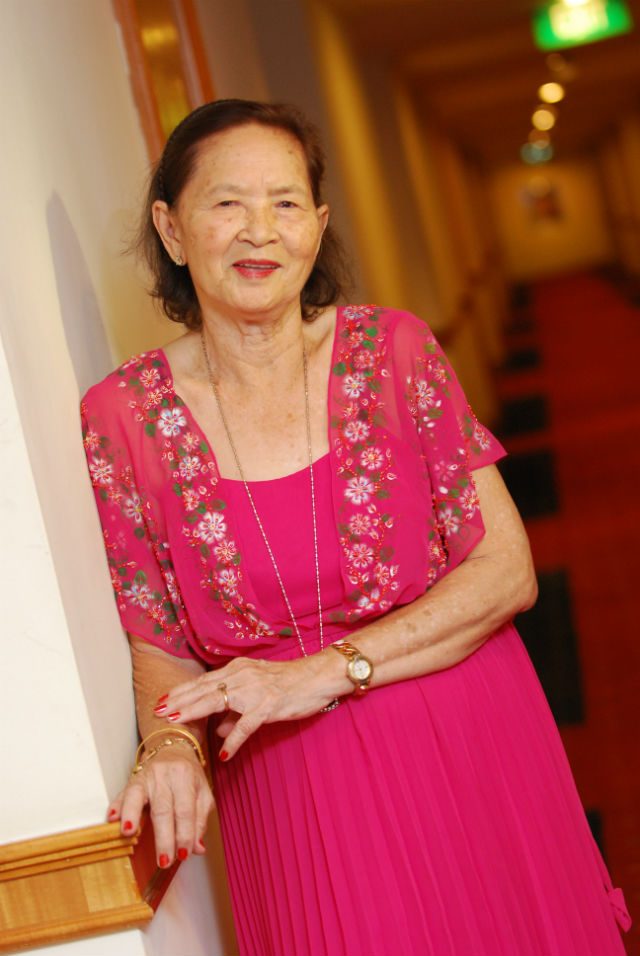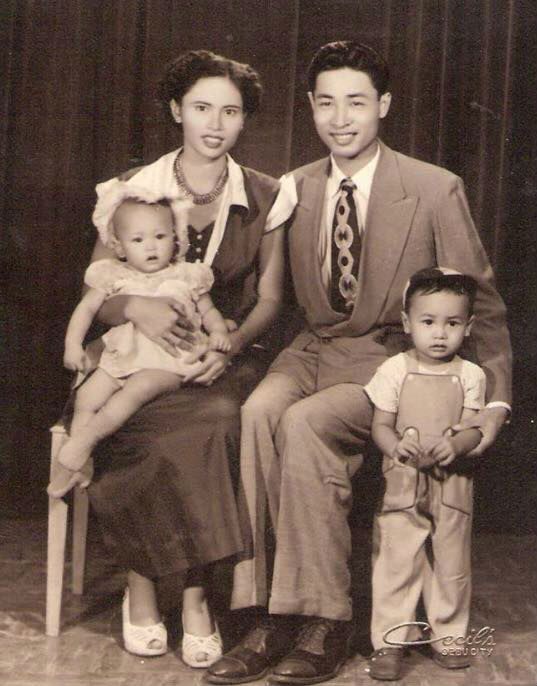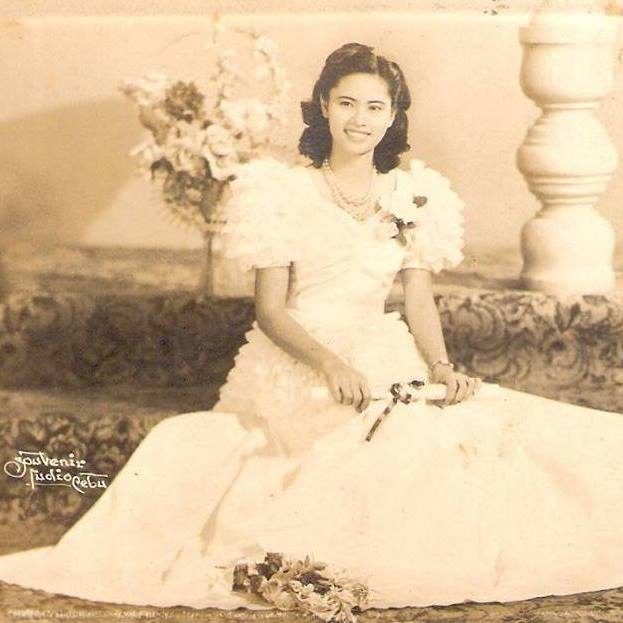SUMMARY
This is AI generated summarization, which may have errors. For context, always refer to the full article.

Lately when I wake up in the morning, I can still smell the scent of heno de pravia, which was my lola’s favorite bath soap. I expect her to be waiting for me when I walk down the stairs and greet me, “Good morning, dong.”
She’d be eating her oatmeal sprinkled with a pinch of brown sugar, while the rest of the family was sleeping. While she might eat only oatmeal, she’d prepare a feast for everyone else.
My lola Ines del Mar Gajudo passed away on May 25, but memories of my summers with lola have been flashing back in my mind like it was yesterday.
I remember when I was growing up, I’d observe how she’d chop vegetables with her sharp knife, she was deliberate and confident with every move she made in the kitchen. While she was cooking she’d tell me stories about where she grew up, far away from California, in the mountains of Bohol and in the old town of Cebu.
Looking back, it was lola’s stories that sparked my fascination with the motherland.
How I long to hear her voice and her stories once again. “You know, dong, when I was your age, I could slaughter animals on my own,” she’d say. She grew up at a time when it was difficult to be a woman, but she didn’t have to abide by what women were expected to do at the time, becoming the first woman in her province to drive a car.
My grandfather worked for a shipping company called Sweet Lines, while she was an entrepreneur.
Lola’s stories

She’d tell me stories about the principles, values and life of the grandfather I never knew. He died in 1994 when I was 6 years, so I can’t even remember the sound of his voice anymore. But because of my lola’s stories, it felt as if lolo was very much around.
She would tell me how he emphasized the importance of eating meals together; about his strict, but loving style as a father. She told me that he was a voracious news reader and would not be happy if his morning newspaper, The Freeman, would be late. “Why is my paper late? This isn’t news anymore, this is history!” he’d tell the paperboy.
But what lolo was proudest of was his beautiful wife, and children. While lolo Conrado and many others would tell lola Ines she was beautiful, she was always too busy to be concerned with her looks.
She was friendly, kind and generous. She traveled the world from the Holy Land to the Americas. While looking through old photos of lola, she’d always have the biggest smile when she was exploring faraway land.
She often traveled alone and unafraid, and shuttled from one country to another just to see her grandchildren. I don’t know how she did it, when I still get nervous at airports alone. But my grandmother always figured these things out on her on, at a time before Google, smart phones, and 3G existed.
I still can’t figure out how she always seemed so composed, she was never too emotional, too angry, or too sad. Even if she had every reason to be stressed, having so many roles to fill as a wife, a mother of 12, a businesswoman, and an active public servant.
Public service

She and her husband Conrado served multiple terms as barangay councilors in Mabolo, Cebu City. Despite having a big family to take care of, they would always have an open door to listen to the problems and issues in their community. Meeting the different people who visited her wake, I realized that she wasn’t just lola to 40 grandkids and a mother to 12, she was a mother to everyone who knew her, especially the people of her barangay.
Mayor-elect Tommy Osmeña, whose father Sergio Osmeña Jr was a close friend of lola Ines, commented on my Facebook page a few weeks ago that she once helped hide over 200 black shirt rebels who were brought by Sergio Osmeña Jr, from Mindanao to counter Marcos’ goons in Cebu during the 1969 presidential campaign. While I was proud to hear that from Osmeña, I was shocked to learn this story, as it was a story she never shared with me.
Last song
For more than 60 years, she stayed in the little blue house in Sitio Regla, Barangay Mabolo. It was a fun house to visit when I would visit as a kid. I had so many cousins to play with, and a fun grandmother who would feed us delicious food and chocolates while we would run wild.
The next time I would visit Sitio Regla again would be as an adult last 2013 when I first moved to the Philippines. But this time the visit wasn’t as happy or exciting like when I was a kid.
The house was dustier, there were no more lively kids running around. No one to greet me with a box of chocolates. This time, I walked in to see my lola laying there, bedridden. She didn’t recognize me at first. She didn’t remember any of the stories she used to tell me. And as the years passed she had only gotten worse. In the last 3 months of her life, she was unable to talk.
And in the beginning of 2016, I moved to Cebu to be able to spend more time with family and explore the idea of working in Cebu. It also allowed me to spend what would be the last months of my lola’s life with her.
It was on May 22 that I would spend what would be my last night with lola at her house. On that night she seemed very uncomfortable and unable to sleep. I remember growing up I’d play on the piano an old Visayan song about unrequited love called “Matud Nila”; and “Speak Softly Love” from her favorite movie The Godfather. Since I didn’t have a piano, I decided to sing to her.
But as I sang, tears began to roll from her eyes. And it was the first time in my 28 years that I had seen my calm, composed, confident and independent lola cry. I held her hand and cried with her.
She struggled in an attempt to speak, but she didn’t have to say anything because her eyes told me everything. That she no longer wanted to be trapped in her bed and in her body that made even wiping her own tears a battle. And that she longed for that freedom that she once had. A freedom that in her younger years, she’d never let go to waste.
Three days later, she was indeed freed.
Last interview

Sometimes I lie awake not understanding how I ended up in Cebu when I used to dream of Washington DC, in the thick of American politics. But I have no doubt now that I am here because I am supposed to be here. Especially that I was able to be there for lola during her final days on earth.
Lola, I’m a little sad though that I can’t share stories of the work I do as a journalist here in your hometown of Cebu with you, because I’m sure it would have been fun bonding time for us.
But I know you’re just there watching over me. I’m sure you’re telling your friends up there about me, your apo who became a writer like your father.
If you were here now, you would be the first on my interview list. I still have so many questions, if only God could send you back for a day.
While I know you can’t physically be here to talk to me, your friends and loved ones who’ve been coming to Cebu have been sharing some amazing stories about your life.
But goodbye for now, lola. I imagine you up there at the pearly gates. Free from your bed. Young beautiful and vibrant, holding up the line into heaven because you charmed Saint Peter and he got carried away enjoying your conversation. While lolo Conrado is impatiently waiting on the other side saying,”Ines! Hurry up, I’ve been waiting so long up here for you.”
While we, your children and grandchildren, would give the world to embrace you once more. We know you are happier in the embrace of lolo, your “forever” and your creator. I miss you, I love you, and I thank you for everything. I look forward to when it’s my turn to tell you my stories on the day we meet again. – Rappler.com
Add a comment
How does this make you feel?
There are no comments yet. Add your comment to start the conversation.